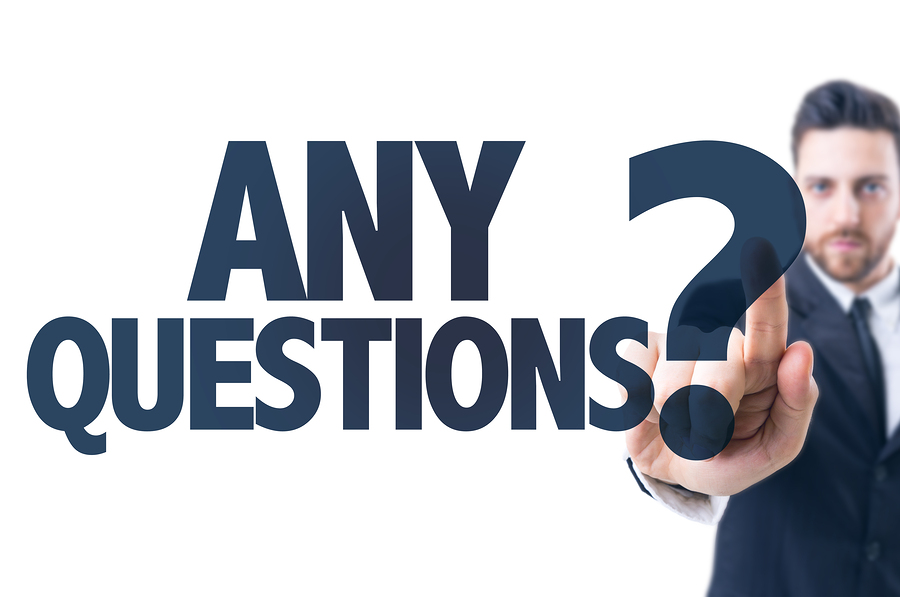You’re reading this article, so I’ll go ahead and assume that you’re a proactive job seeker who knows all the interview basics by heart. For example, you would never show up without fresh copies of your resume, interesting questions to ask, and a working knowledge of what the company actually does.
Or would you?
As a hiring manager in my company (and as someone who’s friendly with many), I’m always shocked at the basic mistakes that otherwise awesome candidates make. In fact, there are five I see pop up over and over again that you should make sure to avoid.
1. Showing up late
Yes. This still happens. And I don’t think it’s because people assume it’s OK to be running behind. More often than not, it happens because candidates don’t take the time to plan how long everything will take-from sneaking out of their office to taking the elevator to the 35th floor in a large building. And unfortunately, “traffic was bad” isn’t a good enough excuse for a hiring manager who planned her day around you arriving on time.
A good rule of thumb is to get to an interview five to 10 minutes early so you have time to relax, use the restroom if needed, and review your strategy before the meeting. You can easily make this happen by looking up the directions the night before and then factoring in extra time for traffic, crowded parking lots, or your boss stopping you on the way out and asking if you had time to look at the reports he sent over last night.
2. Forgetting a hard copy of your resume

Sure, you emailed your resume to the hiring manager-that’s why you’re at this interview right now. And yes, your entire job history’s posted on LinkedIn.
But here’s the catch-while the interviewer might’ve looked at all this stuff recently (very recently in fact), it’s probably not fresh in his or her mind. Especially if he or she reviewed several applicants in a row. So, bringing a hard copy does two things-it refreshes his memory of why he likes you so much, and it makes you look prepared for anything.
You should always bring two to three copies of your resume so the person you’re meeting can have it in front of him throughout your conversation.
3. Dressing inappropriately
Early in his career, a copywriter friend interviewed at a big ad agency dressed in a suit and tie. The minute he walked in and saw that nearly every employee there was wearing jeans and sneakers, he knew he wouldn’t get the job (and he was right). The good news is that he learned his lesson and went to his next interview dressed more casually-leading him to land a great gig.
Before you go on your interview, research the company's dress code. Or, to put it more bluntly, stalk it (and individual employees) on social media.

Yes, in certain types of environments (such as
startups or creative fields), people tend to dress more casually.
But even within those companies, there’s a line you shouldn’t
cross. So, do as much research as possible so that you can prove
you’re a culture fit just by what you’re wearing.
4. Not researching the company
It’s way too easy these days to find information on a company. So showing up unprepared looks extremely bad. You don’t need to know the company’s 2013 profit margin, but you should know the basics about what they do, how they do it, and where they want to go.
You can learn all this by searching for recent headlines, setting up a Google alert to get the latest news on the company sent to your inbox, following the brand on social media to get real-time updates, and talking to anyone you know who works there to find out about the culture and the open position.
At the very least, look up the person you'll be interviewing with or working for on LinkedIn and social media to get a sense of his or her work and personality. If, for example, you discover that you went to same college or both have dogs, drop it into the conversation to make that extra connection.
5. Coming without questions
As someone who has interviewed hundreds of candidates over my career, there is almost nothing more irritating than when you get to the end of an interview and ask, “So, what questions do you have for me?” and the person looks at her notes-or hands-and then says, “Um, I think you answered everything.”

And yes, that is possible if you come to the interview with basic questions like, “What are the job’s daily responsibilities?” But I’m not looking for someone who asks basic questions, I’m looking for someone who wants to work here so badly that he or she truly has questions about the position’s goals, the company’s mission, and the culture.
That means you should always arrive at an interview with a list of at least 10 smart questions for your interviewer. A few of them should be personal so that it’s almost impossible for the hiring manager to answer them during a 25-minute conversation. Not personal like, “Are you married?” But personal like, “How do you personally define success on this team?” and “What’s your favorite part of your current role?”
Remember: This is just as much a chance for you to interview the company as it is for the company to get to know you. Ask questions with that in the back of your head.
The next time you land an interview, keep these basics in mind.
They may sound simple, but take it from me: You’ll be way ahead of
everyone else.